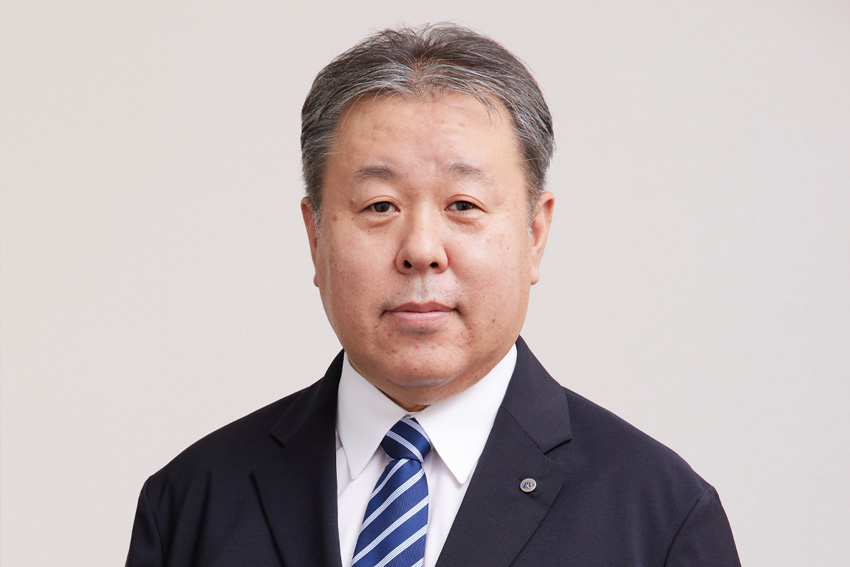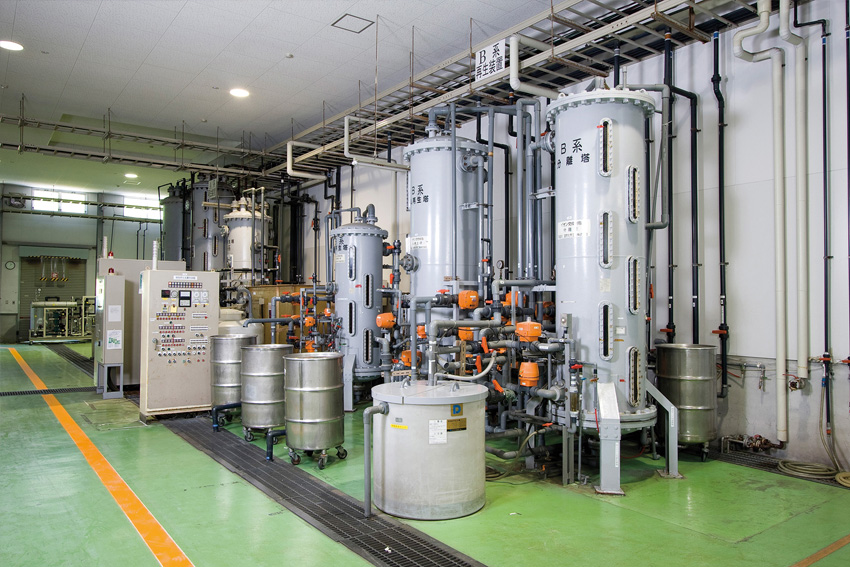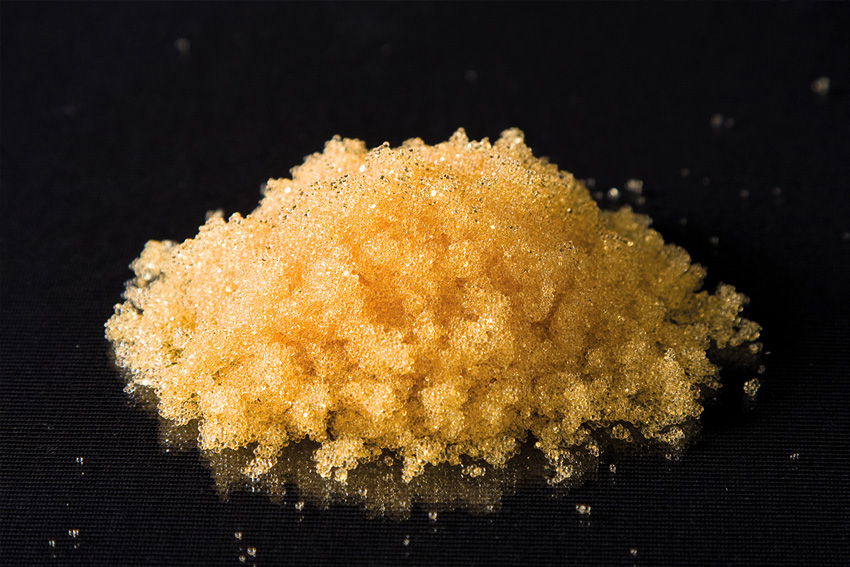Muromachi Chemicals, a Japanese firm engaged in pharmaceuticals and environmental solutions, adapts to market changes by diversifying its offerings, all while striving for global health and environmental impact.

Over the last 25-30 years, Japan has seen the rise of regional competitors which have replicated the Japanese model of success but done so at a cheaper labor cost. However, Japanese firms are still leaders when it comes to niche, B2B fields. How have Japanese firms been able to maintain their leadership despite the stiff regional competition?
I should probably start by providing a bit of background on the history of our society, as it holds the key to the current strengths of Japanese firms. Over several centuries, Japanese people have cultivated a distinct culture emphasizing respect for others. Living in this country, one quickly realizes that throughout society, individuals feel a deep sense of shame when they cause trouble or fail to meet others' expectations. There has also been a strong emphasis on discipline, which has long been considered paramount. Doing business in such a society almost necessitates prioritizing customer satisfaction, which is indeed the ultimate goal in many companies. I believe this commitment is why Japanese firms have maintained their leading position in the face of stiff competition.
If I were asked to describe the style of our business, I would say it leans heavily towards a solution-oriented approach. This inclination is deeply rooted in the national character of the Japanese people. They are renowned for their meticulousness in pursuing goals and ensuring customer satisfaction. Our company's foundation was built on the relentless effort to meet customer needs and demands, which has enabled us to thrive for over a century. As we consistently meet and exceed customer expectations, the bond of trust between us deepens. Leveraging these long-standing traditions and the trust we've earned, we've been able to innovate and explore new avenues. Moreover, this trust and tradition have empowered us to target niche markets successfully.
Japan is the world’s oldest society and due to low birth rates, has a rapidly shrinking population. This comes with issues such as a labor crisis, a shrinking domestic market, and problems with skill inheritance. What have been some of the challenges this demographic shift has presented to your firm and how have you been reacting to them?
Population decline is indeed a significant concern; we are compelled to address this pressing issue. Currently, what we're witnessing in Japan is the migration of residents from small regional cities to larger regional or cosmopolitan areas such as Tokyo, Osaka, Sendai, Nagoya, and Fukuoka. It's even been reported that once children reach adulthood, around 60% of them leave their hometowns in search of employment opportunities elsewhere. Given that our company is situated in the regional city of Omuta City, we recognize the critical importance of securing a stable workforce.
In recent years, we have initiated outreach to young individuals anticipating high school or college graduation, connecting with them prior to their graduation dates. Additionally, we are planning to forge partnerships with Omuta's city hall, enabling us to engage with even younger demographics, including elementary and junior high school students. Our aim is to provide them with a deeper understanding of our company's societal contributions. By following through with these initiatives, I believe we can generate increased interest in our company among young people.
If we remain complacent with the current situation, there will surely come a time when we will be unable to secure labor and maintain production capacity. In addition to the PR activities I mentioned earlier, we also need to invest in equipment that will enable us to operate our factories with less labor. In any case, all measures must be taken urgently.

Your business can be divided into three main divisions, pharmaceuticals, chemicals, and health foods. Which business division are you currently focusing on and which do you believe has the most potential for future growth?
At present, pharmaceuticals.
Could you expand on how you are trying to leverage the growth of this business?
When we examine three of our main sectors—pharmaceuticals, health foods, and chemicals—more than 50% of our sales volume comes from the pharmaceutical sector. That being said, our share of the active pharmaceutical ingredient (API) market in Japan is only 1%. This indicates that there is still a potential 99% yet to be tapped into.
Advances in genomics and our understanding of individual genetic variations have led to the concept of personalized medicine. As such we are seeing APIs being designed for specific genetic profiles or patient populations that maximize the treatment efficacy while minimizing side-effects. As a firm that provides APIs, how have you been adapting to the rise in personalized medicine?
Actually, we haven’t really delved deep into personalized medicine yet because around 70% of our APIs are for generic pharmaceutical companies. Other than trading APIs, we also engage in contract development for small quantities of medicines. Pharmaceutical companies approach us to develop specific processes for their new drugs, and we typically receive around 10 orders a year for developing these new drug production processes. Sometimes, this involves modifying the processes to meet the needs of the generic drug makers.
In the pharmaceutical industry, the current trend we keep an eye on involves the evacuation from countries that harbor various risks. Currently, many pharmaceutical companies are avoiding these countries due to these risks and instead seeking APIs and other products from alternative countries. Furthermore, we are witnessing the return of many pharmaceutical companies to Japan. This trend has also affected our company, as we have recently received requests for contract manufacturing of products from major pharmaceutical companies. When it comes to small lot contract manufacturing, they often prefer companies like ours, which are small to medium-sized enterprises.
Are you referring to Japanese companies exclusively or are you also doing contract work with overseas companies?
Most of our clients are Japanese pharmaceutical companies.

Would you be interested in diversifying your client portfolio and offering these kinds of services to overseas generic pharmaceutical firms?
If given the opportunity, we would like to expand our product sales to overseas generic pharmaceutical firms. However, at present, our product sales to overseas pharmaceutical companies are limited. Our primary overseas business involves importing APIs from China, India, and some European countries. We utilize our own processing methods, and the final output is sold to Japanese firms, including three major Japanese generic pharmaceutical companies.
I believe our company occupies a unique position as we operate both as a trading firm and a manufacturer. We import APIs from overseas and sell them to domestic companies, while also applying our own processes to these APIs.
I'd like to emphasize another important aspect: our unique synthesis technology. Impurities are inevitably generated during the synthesis of APIs, but we have the capability to remove these byproducts through separation technology in our chemicals business, utilizing ion exchange resins and separation membranes. This enables us to produce APIs in a safe, efficient, and cost-competitive manner, while also enjoying synergistic effects within our company.
Speaking of your chemical division, you have products specifically for water treatment including your Muromac UL Series, a highly cross-linked ion-exchange resin developed to produce water that is completely free of any impurities with applications in desalination equipment, power plants, and a whole range of other applications. Could you tell us about your chemical division?
The Muromac UL series is a highly cross-linked resin known for its exceptional oxidation resistance. Compared to competitors', this series boasts a larger exchange capacity and longer service life, making it a preferred choice in some power plants. However, it's important to note that we do not manufacture the ion-exchange resin ourselves. Instead, we import them from various countries including China, Korea, India, and some European countries, and collaborate with small and medium-sized enterprises (SMEs) in these regions. Upon arrival in Japan, we function as a quality assurance agency, conducting numerous tests to ensure the safety and functionality of the finished products. Only after passing all tests, we distribute the products to the Japanese market.
Do you have any ideas or projects to introduce more products to the Japanese market or perhaps to co-develop new products?
We have many plans, themes, and topics. One area where we are putting a lot of our focus right now is the project on Per- and polyfluoroalkyl substances (PFAS).

Could you elaborate on this Organic PFAS Project?
PFAS is a substance used in certain industrial products and has garnered increasing attention in recent years due to its resistance to decomposition in nature and potential health hazards. Both the United States and Europe have already implemented some restrictions on these chemicals, and the Japanese government has also begun taking action. Currently, they have only established tentative targets, but stricter controls on PFAS are expected to be implemented soon, particularly within the semiconductor industry. Essentially, the government aims to limit the release of these chemicals.
In Japan, many people drink tap water without filtration, prompting the government to feel the urgent need for regulations on these chemicals. Currently, we have received numerous inquiries from factories emitting PFAS, and we have also provided consultation to several local governments overseeing regional drinking water regarding our expertise.
In 2010, you opened an overseas operation in China. Moving forward, what countries or regions have you identified as key to the future expansion of Muromachi Chemicals, and what strategies will you employ in order to do so?
Currently, China is the most crucial country for our business. In China, we have reliable partners with highly advanced technological capabilities. Due to our long-standing relationships with these partners, we aim to further deepen our ties and explore more possibilities for product development and joint research projects. However, it's important to acknowledge that there are risks associated with operating in China. Relying solely on one country for supplies poses significant risks, and to mitigate these risks, we have also made concerted efforts to establish new connections with manufacturers in India.
Our company has a mid-term business plan with a view to developing our business further. M&A involving foreign companies could be one of the best options. When we investigate the potential target, what is most important for us is to assess the level of synergy we can create with the potential partners.
Imagine that we come back in six years and have this interview all over again. What goals or dreams would you like to achieve by the time we come back for that new interview?
First and foremost, our mission is to enhance the health and environment not only in Japan but worldwide. In terms of health, we are already involved in our API business as well as health foods. Concerning the environment, we have been in the business of removing impurities and harmful substances from liquids for a considerable period. Therefore, I believe that our business is directly linked to improving people's health and the environment, thereby making a significant contribution to the betterment of society. My mission is to continue growing our business based on this mission through cooperation and collaboration with other companies.
Lastly, I would like to add one thing. Throughout this interview, we have discussed our neighboring countries in terms of potential risks. However, in my view, I don't see them solely as risks to avoid, but rather as friends with whom we should cooperate and deepen our relationship of trust. That is the kind of world that I would like to live in, one where we all share common goals for the future of humanity.
0 COMMENTS